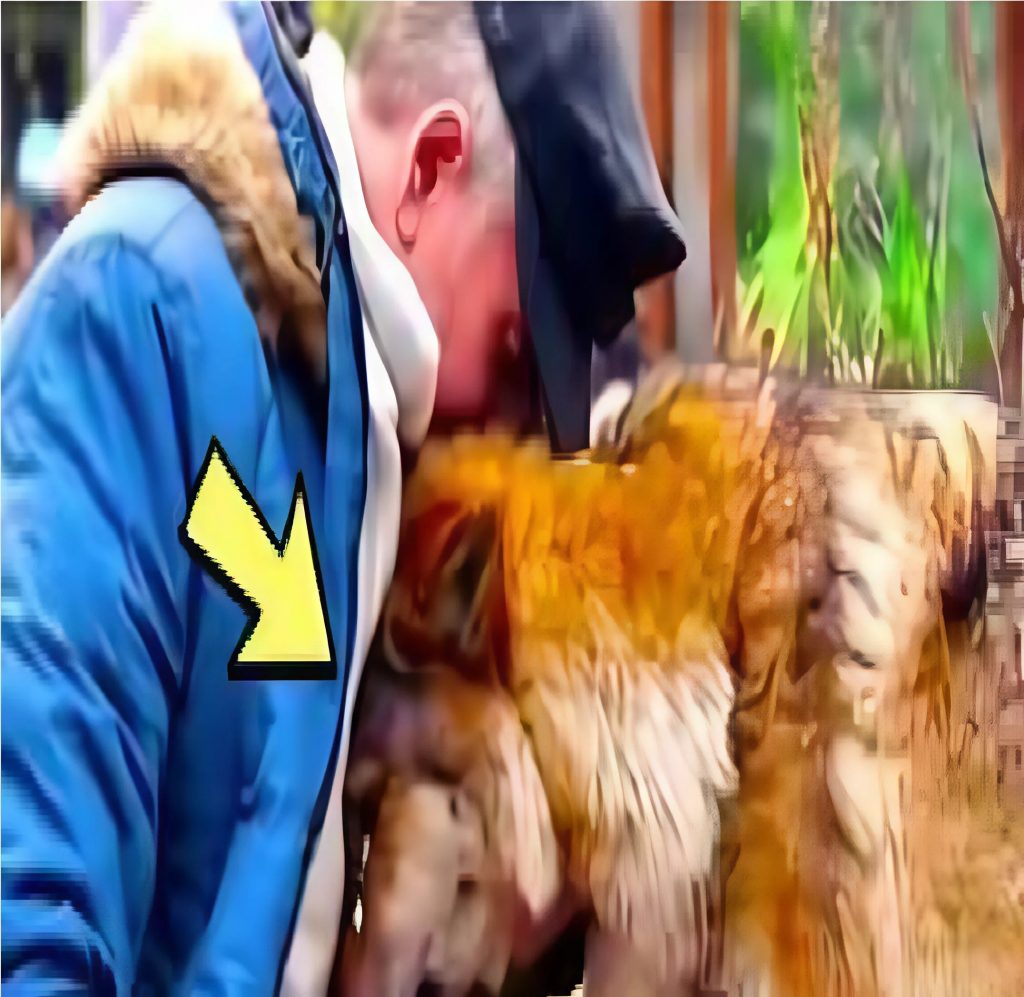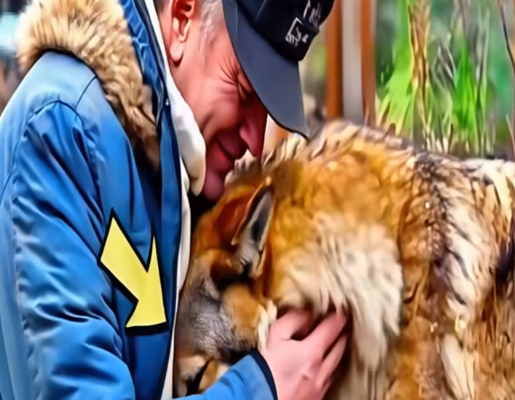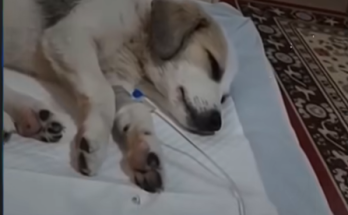In the frozen silence of a northern winter, when the snow buried the world in white and the trees stood like frozen sentinels, a solitary hunter named Andrei trudged through the woods with a heavy heart and heavier boots. His cabin, isolated in the dense forest near the foot of the Ural Mountains, was far from the nearest town, and Andrei preferred it that way. He had left behind city life years ago, trading bustling streets for whispering pines, and never once regretted it.
One gray morning, while checking his traps miles from home, he came upon a scene that gave him pause. Under a low ridge, shielded from the worst of the wind, lay a she-wolf. Her coat was dull and matted, her ribs jutted out sharply beneath her fur, and her amber eyes were dulled with fatigue and pain. At first, Andrei raised his rifle instinctively, the years of conditioning quick to surface. But something in her gaze — not defiance, not fear, but something else entirely — made him lower it.
She was pregnant. Dying, but still carrying life.
For reasons he could not explain, Andrei walked away that day without firing a shot. But he returned the next morning with a slab of venison. He tossed it near the den and left. The next day, he brought another. Thus began an unspoken pact.
Winter in those parts was unforgiving. The snow thickened, temperatures plummeted, and predators grew desperate. Yet each day, Andrei carried food to the she-wolf, never approaching too closely, never trying to touch her, only watching from afar to ensure she ate. He did not tell anyone — not that there was anyone to tell. The forest was his only witness.
By late February, the she-wolf disappeared from the ridge. Andrei feared the worst, but snow buried any trace of her fate. Eventually, spring came. The snow melted. Life returned in bursts of green and the laughter of birds.
A year passed. The memory of the she-wolf lingered in Andrei’s mind like the echo of a dream — sharp at first, then gradually fading into a quiet corner of his thoughts.

Then, on a morning thick with fog, he heard something strange in the woods.
A low growl, not menacing but resonant, followed by the snap of underbrush and the sharp bark of something too large to be a fox. Andrei froze. His dog, usually bold and eager, whined and pressed close to his leg.
Andrei stepped cautiously forward. The forest seemed to hush around him, the trees holding their breath. And then he saw them.
Six wolves. Strong, sleek, with eyes like molten gold. They stood in a half-circle, not growling, not approaching — just watching. At their center stood a female wolf, slightly older, with a faint scar near her left eye. Recognition punched the breath from his lungs.
It was her.
Before Andrei could move, the pack stepped aside. From behind them came a low whimper, followed by a flash of fur. A small figure padded forward — a cub, clumsy and curious, with eyes exactly like hers.
The she-wolf gave a low chuff. The cub hesitated, then trotted up to Andrei and sat, tail wagging lightly.
Andrei dropped to one knee, heart pounding. He did not reach out. The cub came closer, sniffed his coat, then bounded back to the pack. The she-wolf nodded — and that gesture, subtle and powerful, needed no words.
The wolves turned and disappeared into the mist, as silently as they had come.
For a long time, Andrei stood there, staring into the trees. He realized then that something had changed. Not just in the wolves, but in himself. He had once saved a life, expecting nothing in return. Now, that life — multiplied, strong, wild — had come back, not to repay, but to acknowledge.
It is one thing to walk through a forest alone. It is another to walk it knowing that you are no longer merely a visitor. That day, Andrei was claimed, not by a pack, but by a deeper truth that few ever witness: the forest remembers.
From that day on, whenever Andrei hunted, he noticed subtle signs. A trail cleared, a warning growl in the distance when a bear was near, a flicker of movement that steered him away from danger. He understood. The wolves were watching — not as guardians, perhaps, but as kin.
The villagers, when he came down for supplies, would sometimes speak of strange sightings — wolves too bold for comfort, yet never aggressive. Andrei would only smile.
He never told them what really happened. Not out of secrecy, but reverence. Some stories, he believed, were not meant to be explained. Some stories lived better as whispers in the trees and footprints in the snow.



